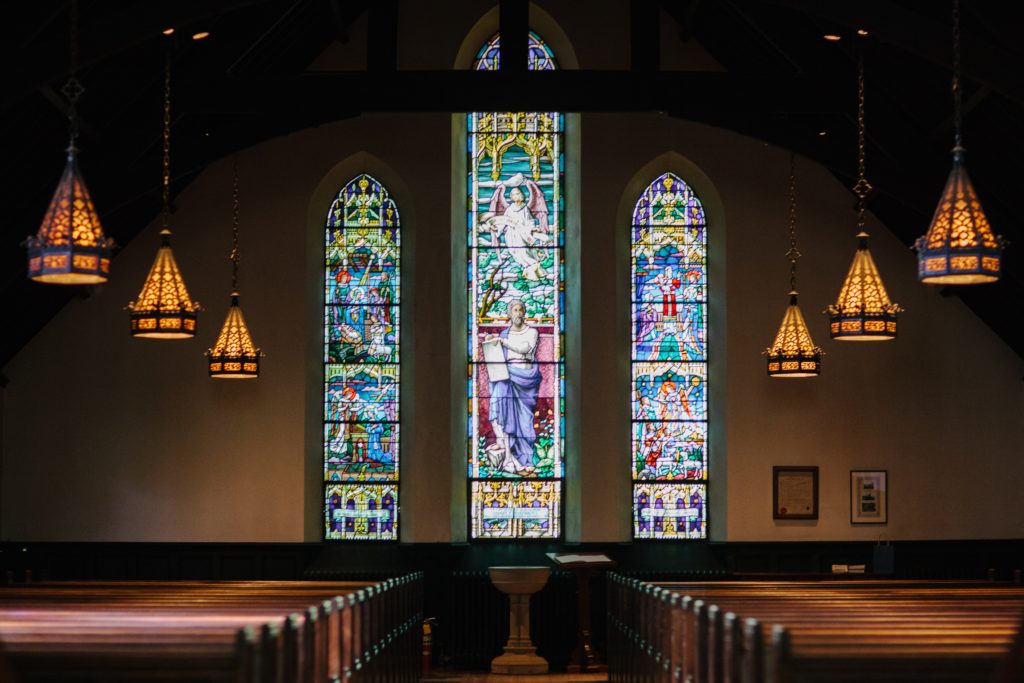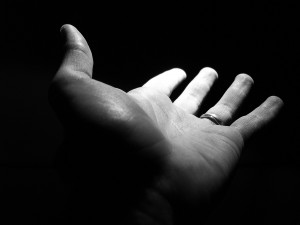
The hypocrisy of religious people is extremely damaging to the witness we hope to have in the world. Non-Christians aren’t the only ones who pick up on it and say, “That’s terrible!” God does not like religious hypocrisy either. This is what we’ll see in Isaiah 1:10-20.
Last week (see “God’s Grace for His Rebellious Children“), we saw that God’s people were rebellious. This week, we see that God’s people were religious. They were rebellious and religious at the same time – and God did not like it AT ALL.
Religious Activities
Hear the word of the Lord, you rulers of Sodom! Give ear to the teaching of our God, you people of Gomorrah! “What to me is the multitude of your sacrifices? says the Lord; I have had enough of burnt offerings of rams and the fat of well-fed beasts; I do not delight in the blood of bulls, or of lambs, or of goats. …”
– vv. 10-11
These religious practices were some that God had put in place for His people to relate to Him. Here He’s saying, “Enough! I am not enjoying this!” No amount of religious activity means anything to God if we’re not obeying Him.
If you sin in the morning, you can’t balance it out by listening to K-Love later. You can’t be greedy with your money all month and then give an offering on Sunday and balance it out. You can’t indulge in sin all week long and then make it all even by going to church. Religious activities do not mean anything to God if they’re not connected to a life of obedience.
Religious Gatherings
God also doesn’t want our religious gatherings if we’re not obeying Him. Verses 12-13a, “When you come to appear before me, who has required of you this trampling of my courts? Bring no more vain offerings; incense is an abomination to me. …” Our daily disobedience sucks the meaning out of anything religious.
Imagine a husband who is openly cheating on his wife. Then, at anniversary time, he comes up with a lavish gift for her: a trip to Paris. Now a trip to Paris would be great under normal circumstances, but his adultery has sucked the meaning out of that gift and turned it into an abomination. It’s like a slap to his wife’s face.
If we live in disobedience and try to appease God with religious activities, it’s not just meaningless – it’s an abomination. It would be better to stay at home and do no religious stuff than to be rebellious and religious at the same time.
“… New moon and Sabbath and the calling of convocations – I cannot endure iniquity and solemn assembly. Your new moons and your appointed feasts my soul hates; they have become a burden to me; I am weary of bearing them. …”
– vv. 13b-14
This combination of ongoing unrepentant sin and religious duty is hideous to God. He doesn’t want pretenders. What He wants is a life of real obedience to Him, and religious stuff being an outgrowth of that.
What makes religious activities meaningful? According to this Scripture, it’s an underlying lifestyle of obedience. So if you have trouble connecting with the church and find it meaningless, it could be because of what’s happening in everyday life. It could be that you haven’t given your life to Christ and aren’t living in daily obedience to Him.
Answers to Prayer
A third point in this part of Isaiah is: God will not respond to our prayers if we’re not obeying Him. “When you spread out your hands, I will hide my eyes from you; even though you make many prayers, I will not listen; your hands are full of blood” He says in verse 15.
You might think, “Is God still this way?” Yes, He is. This is the same God who is in the New Testament (see 1 John 3:22; John 15:7).
If you’re not responding to what God is saying to you, you probably shouldn’t expect Him to respond to what you’re saying to Him. The only prayer He hears from rebellious, disobedient people is a prayer of repentance.
So … Do We Have to Be Perfect?
So do we have to be perfect for any of our religious activities to mean anything and for God to listen to us? No. But we need to be willing to admit our sin and be changed by God.
“… Wash yourselves; make yourselves clean; remove the evil of your deeds from before my eyes; cease to do evil, learn to do good; seek justice, correct oppression; bring justice to the fatherless, plead the widow’s cause. …”
– vv. 16-17
God wants repentance in pursuit of obedience. He wants us to seek what is right and put a stop to what is wrong. He wants us to care for vulnerable people (James 1:27) – fatherless kids, widows, single mothers, the elderly, people with disabilities. God cares about them, and He wants us to care too.
God’s Plan to Cleanse His People
“Come now, let us reason together, says the Lord: though your sins are like scarlet, they shall be as white as snow; though they are red like crimson, they shall become like wool. …”
– v. 18
God’s people were so rebellious, and their religion was only making it worse. However, they couldn’t just fix themselves. So embedded throughout Isaiah are pointers that God would bring about something that would actually cleanse His people from their sins. Looking back, we know that this was pointing to Jesus Christ.
As a church, we are a gathering of the repentant – not a gathering of the perfect. We are made righteous through Christ, and we live out of that identity in obedience. “If you are willing and obedient, you shall eat the good of the land; but if you refuse and rebel, you shall be eaten by the sword; for the mouth of the Lord has spoken” (vv. 19-20).
May we never be religious without obedience. May we repent of our sin. And may we pursue obedience, living by God’s ways through His grace in Christ Jesus.
Discussion Starters
- What is the purpose of religious activities? Why might God not enjoy it when we do them?
- In what ways do you try to “balance out” your sin with good?
- Why might God not respond to prayer?
- Do we have to be perfect for our religious activities to be meaningful and for God to answer our prayers?
- What does a life of repentance and obedience look like?






